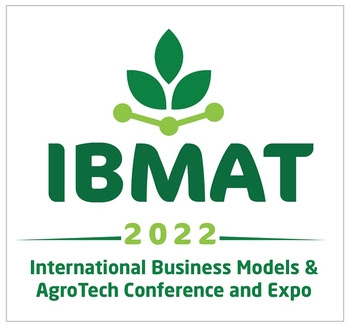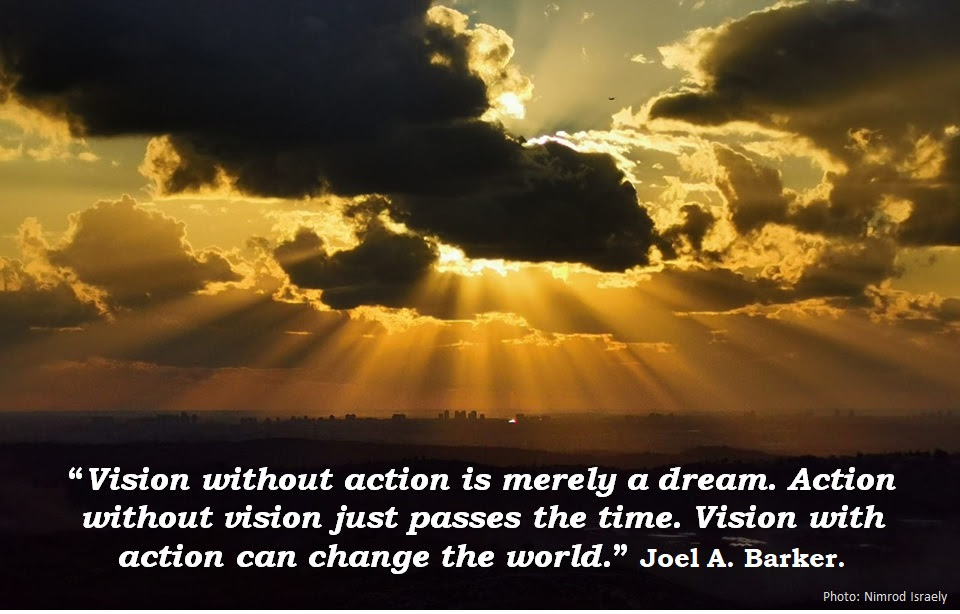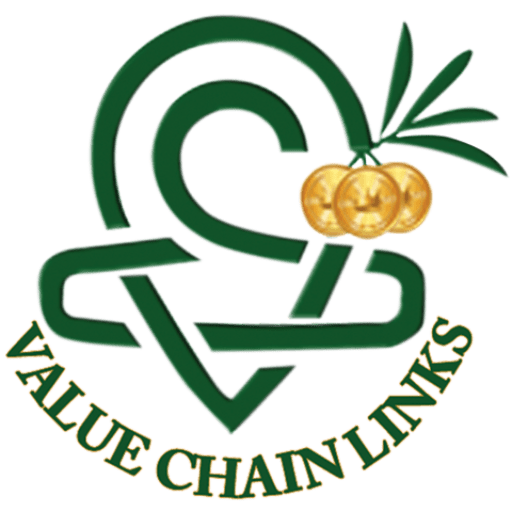THE AGRO-BUSINESS-SOCIAL-ACADEMIC EVENT THAT SHOULD NOT BE MISSED IN 2022

As a long-time farmer, I know that a farmer is, in fact, a “business owner.”
But, being a farmer, you need to be an expert in so many different fields, probably second to no other profession.
A partial list of “fields of expertise” would include – management, procurement, operations, biology and psychology of plants, crop protection (entomology and phytopathology), soil, climate, irrigation, fertilization, plant design, logistics, marketing, sales, finance, technologies, etc.
Of course, no one can be a professional expert in many fields.
So what do we do?
ECOSYSTEM IN DEVELOPED ECONOMIES
There is more than one way of dealing with the complexity of skills and knowledge required today. Here are two archetype paths of approaching that challenge.
ADVANCED PROFESSIONAL FARMERS
As described above, farmers in developed economies often hold an academic degree and work in teams to deal with the agro-industry complexity and high demands.
But to face today’s challenges, there is a need for the support of professional Extension Services and the assistance of local and international academic experts and researchers.

Agro-industry became so advanced that you can’t survive and succeed unless you are a market leader and expert and… have access to many more experts!
As a result, farmers often buy “a service” rather than a “product.” For example, you can buy an “irrigation service” that would include everything from planning the irrigation system, implementing it, and operating it regularly. The farmer only gets reports but doesn’t deal with it anymore.
The same trend goes for pest control, harvesting, packinghouse (sorting, storage, shipping), etc.
This trend, when pushed to the extreme, we can outsource services for the entire operation from field to consumer.
In agro-industry, like in other industries, each party specializes in a particular area, contributes to continuous improvement, and increases the ecosystem’s overall success.
SMALLHOLDERS IN EMERGING ECONOMIES
In emerging economies, agriculture is also a “business,” but the difference is that it is a “one-man business.”
Smallholders usually don’t hold an academic degree, are not part of a team of experts, and have no access to such a team.
Furthermore, smallholders operate in a business environment with little or no professional Extension Services and typically zero connection with the academy, local or foreign.
Under such circumstances, business companies sell the farmers the minimum, which includes low-cost products, and there are no “services,” training, or know-how education.
A “Package of (additional – professional) Services” is not an existing option.
THE GROWING GAPS
In this quick review of ecosystems of farmers in advanced economies vs. emerging economies, we find significant gaps.
Below is a partial list of areas where the gaps are enormous –
• Stakeholders’ education (farmers and value chain partners).
• Execution ability (Team vs. Single)
• Government professional support.
• Dedicated R&D.
• Business ECOSYSTEM.
• Availability of advanced services and products to buy or hire.
• Sales and marketing.
• Access to premium markets.
With such significant gaps, it is no wonder that smallholders in emerging economies earn 1-2% per hectare compared to their counterparts in developed economies.
CONVERSION
To improve smallholders’ situation by reducing the above huge gaps, first, we must recognize that there is an obstacle and a problem. We need to accept and internalize the fact of life that problems don’t disappear by themselves.
We will then analyze and define the “problem,” its challenges, and the challenges’ complexity elements.
Then we set a work plan with clear targets, stages, and steps to achieve the desired change and reach the final goal we set.
Then we will execute our plan, not forgetting the quality control and the feedback for continuous improvement.
WHO IS THE RAINMAKER?
In the previous article, I referred to the AGRA program, which has a minimal impact on the African agro-industry after 15 years and tens of $B.
History teaches us that philanthropic enterprises and governments are not successful in running operations and ventures on a business basis.
Hence, having a government or philanthropic organization leading the agro-industry development is often against the principle that “farming is business.”
Unlike governments and NGOs, business people and companies are usually experts in running businesses for customer benefit and their own profit.
Therefore, it is clear that smallholders’ salvation would come from business people and commercial companies. There is no other option!
Those who will eventually bring the solution and the economic revolution to emerging economies are business organizations operating out of clear business considerations.
President Hage Geingob well presents this attitude during the Namibia Investment Summit in Dubai – “Namibia allows profit repatriations.”
Government and philanthropic organizations should support and help business organizations. They can do this by creating and providing the proper business environment and conditions that will enable them to prosper and be ready to invest in promoting smallholders agri-business while minimizing risks and forming the infrastructure to increase the income for all involved.
THE FOUNDATION OF SUCCESS
I hope leaders and stakeholders understand that agriculture is a serious and complex business and not a charity activity.
Smallholders’ ability to work with businesspeople and thrive is the best litmus test that they and the national economy are moving in the right direction.
Governments and NGOs don’t need to profit; hence they drive the ecosystem into an unsustainable state, where profit is not always the focus.
Hence, they should limit their activity to forming the ECOSYSTEM and the ENVIRONMENT to enable business people, e.g., farmers, companies, and others, to maximize their activities and business results.
Commercial companies must sell products, services, and knowledge to profit. To sell those, they use business models.
Usually, we don’t think much about the business model we use. Instead, we follow what everybody else in our industry is doing.
For example, an agrochemical company will sell chemicals to farmers through a particular channel with access to the farmers.
Note that the company sells the chemical and not the tractor, sprayers, or services.
This is because where those chemicals were first developed (mainly in the USA and Europe), farmers already have access to tractors, sprayers, extension services, etc., sold by other companies.
This business model was so effective that it flourished and continued as the company expanded its operations even to areas where farmers did not have access to tractors, sprayers, extension services, etc.
Those companies would point out that “what works best for our best clients with highest demands must work well for all farmers.”
Unfortunately, those companies failed to note the critical meaning of the different ecosystems between farmers in different places.
They also failed to fully grasp (among others) the meaning of different climates, pests, diseases, and mainly the people who live there.
Companies apply their technology using the same or slightly different business model in all places and geographies for efficiency reasons.
They were totally focused on the CROP, not on the people, environment, and ecosystem. The outcome was poor professional and business results to all stakeholders.
The companies blamed the farmers for their incapability of applying their leading technologies correctly, and farmers felt ashamed for not standing up to expectations. In other cases, the farmers would blame the companies for providing inappropriate technology.
A wrong business model creates a lose-lose situation where no one can ever win.
This explains why even decades after companies developed tailor-made technologies, they kept on failing in extending their business activity, operation, and profit.
Although I focus on the agro-sector business models, having proper business models is essential for the success of any business.
From the start, technology was NOT the Achilles’ heel of smallholders; by continuing focus on technologies, companies and organizations failed to see significant improvement in smallholders’ state and emerging economies.
All that time, the problem was always the use of non-suitable Business Models.
Hence, we found ourselves in this “impossible situation” where everybody is losing, and business people view Africa and other emerging markets as “toxic.”
INNOVATION IS NOT LIMITED TO HIGH-TECH
In Israel, the Innovation Authority, which supported Biofeed a lot while we developed our core technology and solutions, is ready to support technological adjustments so companies can sell their products to various geographies and clients, including emerging economies.
However, no one is talking about the importance of the agro-business model and how different they are (or should be) between advanced and developed economies.
No one is warning you that you can’t use the same agro-business models you use in the EU and the USA, also with the smallholders of India, China, Africa, etc.
In reality, companies do the opposite; they often “teach” the local team and farmers to operate locally under the same international model they implement with advanced professional farmers.
As a result, leading companies and top technologies do not manage to enter emerging economies or enter but under exploit those markets.
Companies that invested a fortune in developing those technologies and services lose potential revenue by not exploiting the huge agro markets of the emerging economies.
Companies are not the only ones to lose; emerging economies with their agro-industry are the major losers.
CLOSING THE AGRICULTURAL GAP
If we want to close the agricultural gap between advanced and emerging economies, we should introduce advanced technologies and services to those countries.
As we now understand, that would occur when we recalibrate ourselves to use tailor-made business models for smallholders in emerging economies.
The agro-sector should follow the example of other industries that completely transformed following the introduction of novel business models, which led to the disruption of those industries.
For example, Amazon has developed a novel business model that enables SMEs in emerging economies to benefit from marketing through its platform. Thanks to Amazon’s novel business model, millions of SMEs became prosperous. And yes, Amazon was making tons of money and became the most prominent company. Amazon became such a successful company thanks to “Disruptive Innovation.” It is Disruptive Innovation that enabled Amazon to grow fast while bypassing much larger companies and organizations that were there for ages.
Entrepreneurship based on novel business models that would disrupt the agro-sector of emerging economies is something we need far more than one more awesome technology.
Emerging economies “must” take care of themselves by developing tailor-made business models for smallholders. That is their only chance to catch up with the rest of the world.
Amazon is not the only one to grow fast, thanks to Disruptive Innovation. Many companies do so, including Apple, Facebook, and “low-tech” companies, such as Ikea, Nespresso, etc.
Most people familiar with the term “Disruptive Innovation” believe it refers only to “technology.” However, that is a wrong perception.
Prof. Clayton Christensen from Harvard Business School (HBS), who coined the term, pointed out that Disruptive Innovation happens when a novel business model is used in conjunction with technology. The business model creates disruption, not the technology per se.
AGRO-BUSINESS MODELS
To the best of my knowledge, there has never been an open and deep discussion about agro-business models. This, although their primary role in shaping the agro-sector in emerging economies, and hence their global impact.
The International Business Models & Agro-Tech Conference and Expo 2022 (IBMAT) is the first of its kind, and you shouldn’t miss it.

I am excited about this conference because there is a chance to start an open-public discussion about agro-business models for the first time. Such discussion, followed by improved business activities, would change the agro-sector in emerging economies and turn it into the roaring engine of Africa and other emerging economies.
IBMAT will facilitate meetings and deep discussions on business models between stakeholders; farmers’ leaders, government officials, philanthropic organizations, commercial companies, and academics.
IBMAT is the only place where you would have a chance to learn about a business model that would help you survive or better penetrate emerging economies.
In IBMAT, you would hear stories about business models that failed, those that seem to work better, and those doing their first steps, but maybe the most interesting for you.
Whatever you hear and learn, one thing is for sure – the current business models are not good enough. There is an urgent need for novel business models tailor-made for smallholders.
HUMBLE AND RESPECTFUL
The conference honors the activities of late Prof. Clayton Christensen from Harvard Business School (HBS) in the field of business models.
Prof. Christensen demonstrates how Disruptive Innovation can turn the weak into strong domain leaders.
Disruptive Innovation is also the ONLY type of innovation that is creating jobs and not sustaining or eliminating them.
“If you want to go fast, go alone; if you want to go far, go together.”
IBMAT is about going far, going together.
Nowadays, no one can afford to stay behind using an old, outdated method, tools, or business model.
Africa, Asia, and LATAM yearn for Disruptive Innovation in agro-industry. They are not alone; everybody is looking to see smallholders move from poverty to prosperity and emerging economies becoming more significant from a global economic perspective.
One thing you can be sure about; it is not technology per se that would bring prosperity to smallholders. Instead, it would be a novel business model using technology (not necessarily novel) that would create disruption and would forever change the ecosystem as we know it.
Energize your technology with a robust business model, and maybe your company or service would be the next Apple or Amazon of the agro-sector in emerging economies.

IBMAT is for you if you want to grow your agro-business in emerging economies or if you are a policymaker, opinion leader, academics, or a decision-maker.
The conference is in Kigali, Rwanda, Africa, but it is international. All smallholders and emerging economies suffer from the same problems caused by applying inappropriate business models.
Is the IBMAT conference for you?
Yes, if you hold interest in the economic development of emerging economies and their agro-sector.
In particular, if you belong to one of the following categories –
a business person, commercial company, NGO, government official, expert in business models, stakeholder, decision-maker, trader, exporter, food chain, and anyone who can benefit from improving smallholders’ business activity.
Now is the time to sign up for the conference and reserve your sit before it is too late and sold out.
This week I will be in Senegal (March 28th till April 2nd) and the following week in Rwanda (April 3rd till 6th). Contact me and I will do my best to meet you (nisraely@biofeed.co.il).
